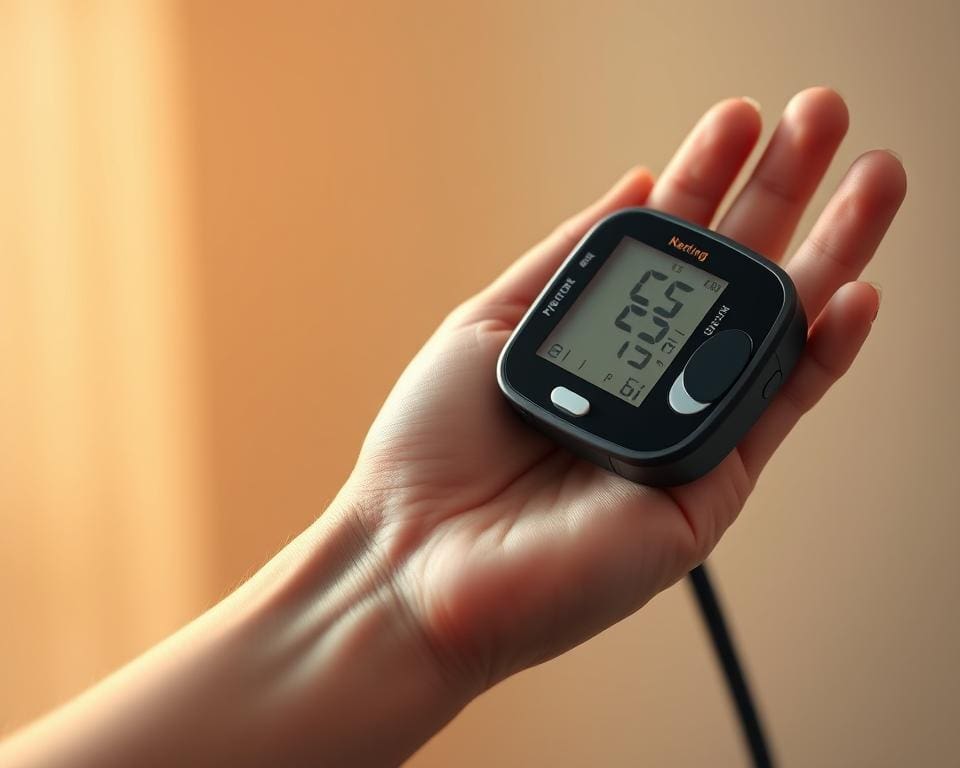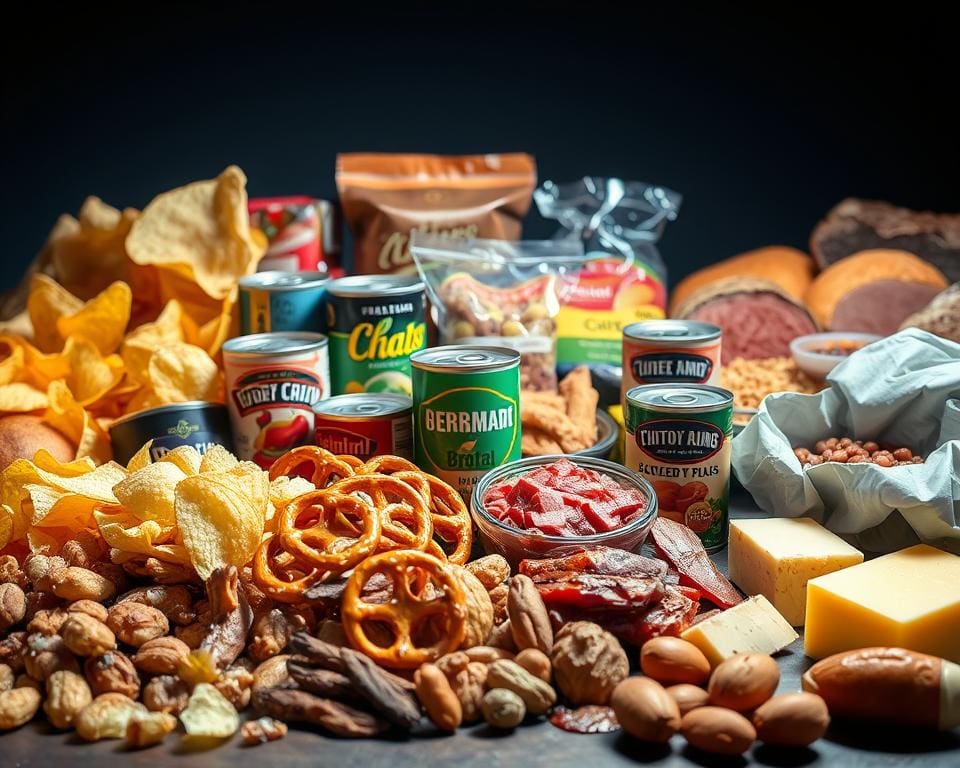High blood pressure, or hypertension, affects millions across the UK, posing serious health risks such as stroke and heart disease. Understanding which foods increase blood pressure is vital for everyone aiming to improve their well-being. This section will explore the dietary effects on blood pressure, highlighting how certain food choices can significantly influence hypertension and diet. By becoming aware of these factors, you can take proactive steps towards healthier eating habits, leading to better health outcomes.
Understanding Blood Pressure and Its Importance
Blood pressure refers to the force of blood pushing against the walls of arteries as the heart pumps it around the body. This vital health indicator offers insights into cardiovascular health. Blood pressure is measured in millimetres of mercury (mmHg), with two readings: systolic pressure, which represents the pressure during a heartbeat, and diastolic pressure, the pressure in between beats.
The health importance of monitoring blood pressure cannot be overstated. Maintaining healthy levels is crucial as elevated blood pressure, or hypertension, can lead to severe health issues, including heart attacks and kidney disease. Heightened awareness regarding hypertension enables individuals to make informed choices and take proactive steps towards their well-being.

Emphasising hypertension awareness fosters a culture of prevention. With lifestyle changes, particularly diet, playing a significant role, individuals can help manage their blood pressure effectively. Adopting a diet rich in fruits, vegetables, and whole grains supports cardiovascular health, vital for reducing the risks associated with hypertension. By recognising the symptoms and understanding the significance of blood pressure management, individuals can embark on a pathway towards a healthier life.
Which Foods Increase Blood Pressure
Many foods can contribute to elevated blood pressure, particularly those rich in sodium and processed ingredients. Understanding these categories helps individuals make better dietary choices to support their health.
High Sodium Foods
High sodium foods are notorious for raising blood pressure levels. Common culprits include table salt, soy sauce, and various snacks like crisps and crackers. These items tend to promote water retention in the body, leading to increased pressure on blood vessels. Reducing consumption of these foods can have a positive impact on overall health and can aid in the management of hypertension.
Processed Meats
Processed meats are another significant factor in the discussion of dietary impacts on blood pressure. Products such as bacon, sausages, and deli meats often contain high levels of sodium and preservatives, which can pose health risks when consumed regularly. These meats not only contribute to elevated sodium intake but can also add saturated fats, complicating any efforts toward maintaining a healthy blood pressure level. Awareness of the ingredients in these foods is crucial for those aiming to optimise their diet.
The Role of Salt in Our Diet
Salt plays a crucial part in our overall health, influencing various bodily functions. Understanding the role of salt helps us navigate our dietary choices more effectively. The sodium content in food directly affects our blood pressure and overall well-being. Finding the right balance in our salt intake is essential for a healthier life.
Understanding Sodium Content
The primary component of salt is sodium, an essential mineral needed for maintaining fluid balance and proper nerve function. The average person consumes significantly more sodium than required, often exceeding the recommended daily sodium limits. It can be found in various foods, including pre-packaged meals, snacks, and condiments. Labelling standards in the UK require clear indication of sodium content on food packaging, making it easier for consumers to make informed choices.
Recommended Daily Limits
The NHS suggests that adults limit their salt intake to no more than 6g per day. This recommendation aims to minimise the risk of hypertension, which is linked to excessive sodium consumption. Educating oneself on reading food labels can greatly assist in adhering to these daily sodium limits. By being mindful of the salt we use in cooking, along with the sodium content in processed foods, we can enhance our culinary experiences while taking care of our health.
Common High Sodium Foods to Avoid
Being aware of the common high sodium foods to avoid is essential for maintaining healthy blood pressure levels. Many convenient options may appear harmless at first glance but are often laden with salt. Understanding specific items can empower you to make informed decisions while shopping.
Packaged Snacks
Packaged snacks, such as crisps and pretzels, rank high on the list of high sodium foods to avoid. These quick bites are designed for convenience, making them an easy choice for those on the go. Unfortunately, their taste often comes at a cost, as many brands pack a significant amount of salt into a single serving, contributing to your overall sodium intake.
Canned Soups
Canned soups are another category often overlooked. While convenient and easy to prepare, many varieties contain sodium levels that exceed daily recommendations in just one serving. It is advisable to read labels carefully, as even those marketed as “reduced sodium” can still contain excessive amounts of salt. Making conscious choices in this area can lead to healthier meals and better blood pressure management.
Beverages That Can Elevate Blood Pressure
When considering factors contributing to elevated blood pressure, it is crucial to examine the role of certain beverages. Numerous drinks can lead to significant health implications, particularly those that are high in sugar or alcohol content. Understanding these can help foster healthier choices.
Sugary Drinks
Sugary drinks, such as sodas and energy drinks, are notorious for their connection to obesity and weight gain. The consumption of these beverages increases the risk of hypertension. They contain high amounts of sugar that can lead to a spike in blood pressure. Regular intake of sugary drinks not only impacts overall health but specifically elevates blood pressure levels. Opting for alternatives like water or natural fruit juices can create a positive shift in health.
Alcohol Consumption
Excessive alcohol consumption significantly impacts alcohol effects on health, notably leading to short-term spikes in blood pressure and chronic hypertension with prolonged use. Moderate drinking is essential for maintaining optimal health. By limiting alcohol intake, individuals can take proactive measures against high blood pressure. Emphasising moderation can greatly reduce the risks associated with such beverages.
Impact of Red and Processed Meat
Understanding the impact of red meat and blood pressure is crucial for anyone aiming to maintain a healthy lifestyle. Various studies suggest that a diet high in red and processed meats correlates with elevated blood pressure levels. This association highlights the need for awareness regarding processed meat health risks, which include not only hypertension but also other cardiovascular concerns.
Types of meat, such as steak, lamb, and sausages, often contain significant amounts of saturated fats and preservatives. These elements contribute to the adverse effects on heart health. Regular consumption of these products can lead to complications, particularly for individuals predisposed to hypertension. Therefore, adjusting meat portions in daily meals may result in a healthier balance and a more effective strategy for managing blood pressure.
By analysing the diet impact on hypertension, it becomes evident that reconsidering meat intake is vital. Opting for leaner cuts and integrating plant-based proteins can provide essential nutrients while minimising health risks. Making informed choices about red and processed meats represents a proactive step toward better health.
Saturated Fats and Their Effects on Blood Pressure
Saturated fats play a significant role in influencing blood pressure and overall heart health. These fats, commonly found in animal products and some plant oils, can lead to various health concerns when consumed in excess. Understanding their sources and the implications of their intake is essential for maintaining healthy blood pressure levels.
Sources of Saturated Fats
Many foods contribute to saturated fat consumption. Some common sources include:
- Butter and margarine
- Full-fat dairy products such as cheese and cream
- Fatty cuts of meat, including sausages and bacon
- Coconut oil and palm oil
Regular intake of these items can lead to increased saturated fat levels in the body, which is associated with blood pressure implications that may adversely impact heart health.
Implications for Heart Health
Studies indicate that high saturated fat intake is correlated with higher blood pressure. This elevation in blood pressure can result in serious cardiovascular issues over time. For optimal heart health, it is advised to substitute saturated fats with unsaturated options such as those found in nuts, seeds, and olive oil. Such dietary shifts can profoundly enhance heart health and support stable blood pressure levels.
Making Healthier Choices for Stable Blood Pressure
Implementing healthy choices into your daily life can significantly enhance blood pressure management and promote overall heart health. The first step on this journey involves reassessing your diet by prioritising fresh fruits and vegetables. These foods are not only rich in essential nutrients but also low in sodium, making them an ideal choice for maintaining stable blood pressure levels.
Alongside incorporating more plant-based foods, it is vital to reduce the intake of processed foods, which often contain hidden salts and unhealthy fats. Opting for whole grains can also make a considerable difference, as they provide necessary fibre and help regulate blood pressure. Consider meal planning as a practical tool to ensure a balanced diet for heart health, enabling you to stay mindful of what you consume.
Remember, implementing small, manageable changes in your lifestyle can lead to significant health improvements over time. By committing to these healthier choices, you can create a sustainable path towards lower blood pressure and enhanced wellbeing. The journey to better health is a gradual process, but taking proactive steps today will lead to a brighter, healthier tomorrow.









